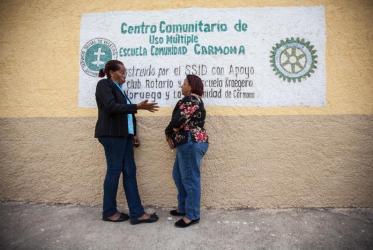Displaying 61 - 74 of 74
27 July 2015
Religious leaders urge a ban on fully autonomous weapons
02 April 2015
Church leaders address statelessness in Dominican Republic
03 February 2015
Churches to be more inclusive of persons with disabilities
16 October 2014
Use of armed drones condemned by WCC
13 February 2014
WCC expresses condolences at death of Brother Jeffrey Gros
13 August 2013






